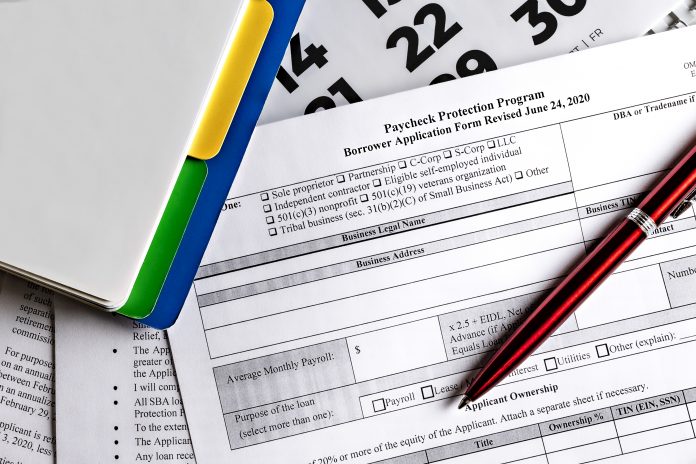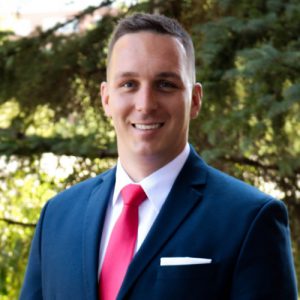
(Note: This story appears in the March 2022 issue of ED Magazine)
Attorney Zack Youngsma explains the 7th Circuit’s decision to cancel SBA funds for gentlemen’s clubs.
Editor’s note: In his previous article on his firm’s Second Draw PPP (“PPP2”) lawsuit in the November 2021 issue of ED Magazine, attorney Zack Youngsma explained their position that excluding adult businesses from a national pandemic bailout was a form of invidious (unjust) “viewpoint-based” discrimination. In October 2021, Wisconsin’s Eastern District Court agreed and issued a preliminary injunction that ordered SBA to fund the clubs’ PPP2 requests. But on appeal, the 7th Circuit disagreed and paused that order until it could review the matter. Unfortunately, on January 26, 2022, the 7th Circuit overturned the lower court’s decision and sent the case back to the lower court. In this follow-up article, Youngsma explains the 7th Circuit’s decision.
The issue in this series of PPP cases is the “prurience” regulation (the “Regulation”). The Regulation states businesses that “present live performances of a prurient sexual nature” are prevented from receiving traditional SBA loans. With PPP2, Congress incorporated the Regulation into the statute. In our appellate brief, we threw everything we had at the Regulation, but the 7th Circuit only engaged with a few of our arguments.
We argued that, among other things, the PPP2 was such a unique and broad government spending program that denying funding based on the Regulation is targeted discrimination. In other words, by denying PPP2 loans to adult businesses based on the Regulation, Congress targeted our industry because it disagrees with our industry’s ideas and views on sexuality, sexual expression, and erotic messaging. When it comes to spending money, Congress may define the scope of the program it funds without that being classified as “regulating” expression. Congress may not, however, use the program to suppress ideas and speech it deems “dangerous” or unwanted (e.g., engage in viewpoint discrimination).
The 7th Circuit held that denying our clients PPP2 loans did not constitute an effort to suppress their ideas or views because the Regulation does not regulate speech. Instead, it merely reflected Congress’s choice to exclude a specific category of expression from funding. Think of it this way: Congress can exclude all lobbyists from receiving PPP2 loans but may not exclude Republican lobbyists while permitting Democratic lobbyists.
The 7th Circuit addressed our closely related invidious discrimination/viewpoint arguments along that same line. Viewpoint discrimination occurs when the government regulates speech based on the specific motivating ideology or the speaker’s opinion (remember: the 7th Circuit concluded the PPP2 does not “regulate” speech). We argued that the PPP2 is viewpoint discriminative in various ways. The 7th Circuit wasn’t having any of it.
Instead, it concluded that “prurience” is just a category of expressive conduct that “may be subject to some forms of government regulation.” Wait a minute! The Court just said PPP2 doesn’t regulate speech, but now it’s saying prurience, as a category, may be subject to regulation. If that’s lost on you, you’re in good company.

Prurience as a category is quite an abstract concept and is central to the Court’s opinion, so I want to pause and explain it a bit more. The Court understands “prurience” to encompass a broad range of views on sexuality, sexual expression, and erotic dance — much like “lobbying” would encompass a broad range of views from Republican to Democratic. Think of “prurience” as being on a spectrum of expression. On one end, in our industry, we might have a dancer in lingerie flirtatiously serving drinks in a club. She’s communicating a sexual and perhaps even an erotic message, but hardly an overly arousing one. On the other end, we might have a nimble, talented, fully nude dancer who’s really “feeling it” that day, giving a private VIP dance. She’s communicating a very arousing, suggestive, and intense sexual and erotic message. By the 7th Circuit’s reasoning, PPP2 does not discriminate based on viewpoint because it excluded all “prurient” views — those barely registerable on the spectrum and those almost touching obscene. Presumably, under the Court’s analysis, if Congress had said something like “no overly arousing prurient dances,” then the PPP2 would have engaged in viewpoint discrimination.
This logic, however, required ignoring our other arguments. For example, we argued the Regulation was vague under several theories (what is “prurient,” what type of expression does it exclude, and why does SBA keep changing its definition of “prurient”?). If “prurience” is a category of expression, then everyone should be able to easily discern what’s “in” the category and what’s not. But even SBA couldn’t do that.
We also argued the Regulation was an impermissible prior restraint/unconstitutional condition (e.g., if our clients ceased the “prurient” expression, would SBA grant them a PPP2?), and that SBA’s interpretation of “prurient” created an impermissible conflict between the PPP2 statute and another part of SBA’s statute. The 7th Circuit did not engage with these arguments.
“Instead, (the 7th Circuit) concluded that ‘prurience’ is just a category of expressive conduct that ‘may be subject to some forms of government regulation.’ Wait a minute! The Court just said PPP2 doesn’t regulate speech, but now it’s saying prurience, as a category, may be subject to regulation. If that’s lost on you, you’re in good company.” — Zack Youngsma
Finally, since, in the 7th Circuit’s view, prurience is just a category of expression, SBA’s PPP2 funding choices are subject only to the Court’s rational-relation review, the lowest form of constitutional review. The idea is that Congress created classes of businesses that may receive PPP2 funding: the “non-prurient” class may, but the “prurient” class may not. Since only protected classes like race and sex are subject to heightened forms of constitutional review, funding choices between non-protected classes like “prurient” and “non-prurient” receive only rational-relation review. This review permits SBA to name anything it can dream up that would rationally justify its funding choice. Here, SBA argued that Congress excluded “prurient” businesses to combat the purported “secondary effects” associated with strip clubs (e.g., crime, late-night noise, etc.). The Court found this justification sufficed despite there being no evidence in the record that this was even on Congress’s mind.
At the macro level, this opinion largely reflects the Court’s original stay order. It ignored or gave short shrift to many of our arguments. It’s a frustrating and contradictory opinion, but, at this point, our clients’ options are limited and costly. They can either request the full 7th Circuit, not just a three-judge panel, rehear the case (an option unlikely to be granted); request the Supreme Court hear the case (also unlikely and very costly); return to the District Court to litigate the case through to a final decision (very costly); or simply dismiss the case. Our clients are still deciding which option to choose.
Readers should note that this article briefly summarizes complex legal issues and judicial decisions. This article is intended for informational purposes only and is not intended to provide either an exhaustive analysis of these matters or any specific legal advice or recommendation. Any opinions or positions expressed in this article are Mr. Youngsma’s alone and do not necessarily reflect those of his clients or ED Magazine.
Zack Youngsma is an associate attorney at Shafer & Associates, P.C., a Lansing, Michigan, based First Amendment law firm. Zack is a 2019 Michigan State College of Law graduate and is licensed to practice in Michigan and Nevada. He is a veteran of the War on Terror who served over 11 years in the U.S. Army. Contact Zack Youngsma at 517-886-6560 or e-mail Zack@BradShaferLaw.com.




























